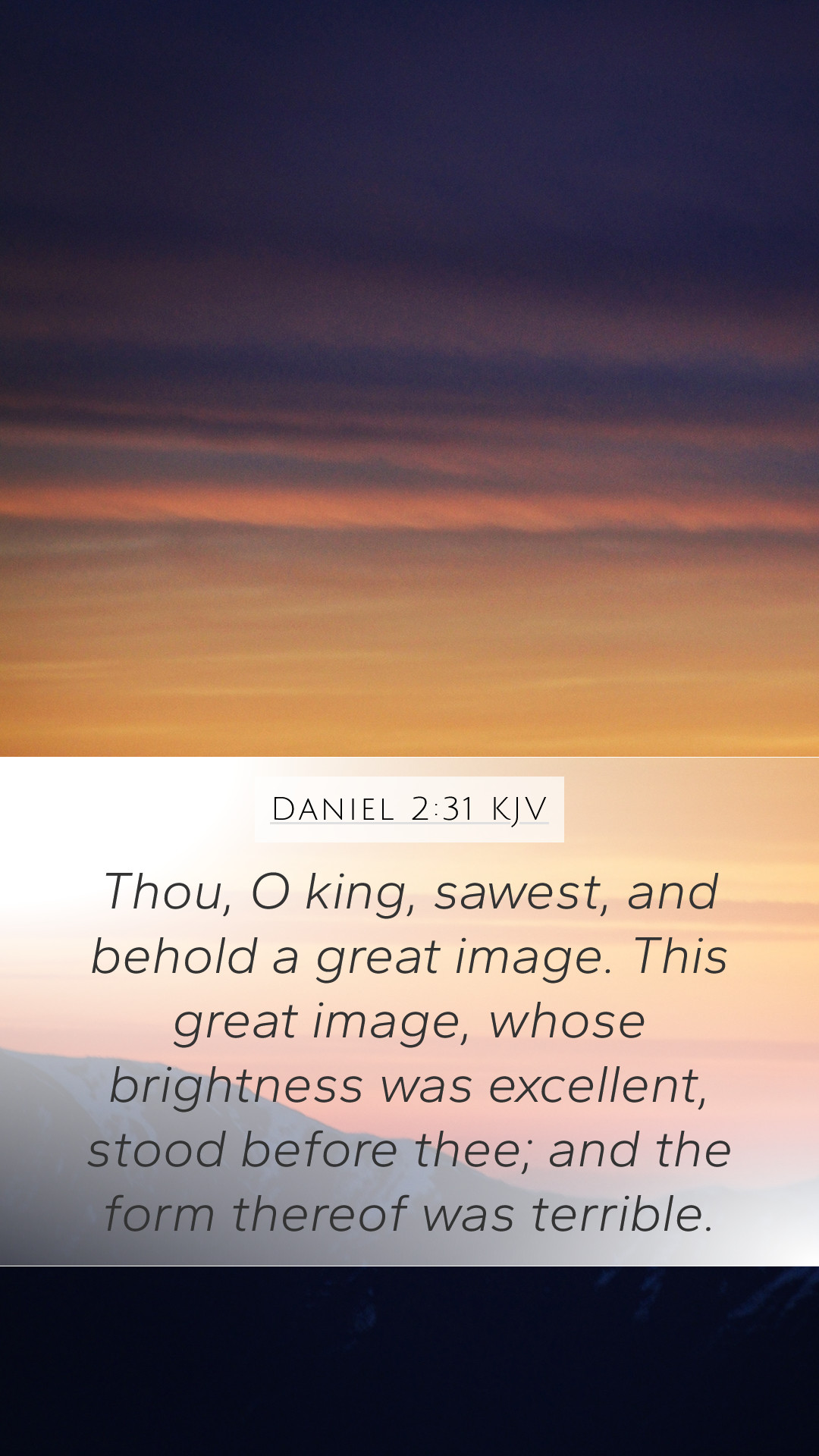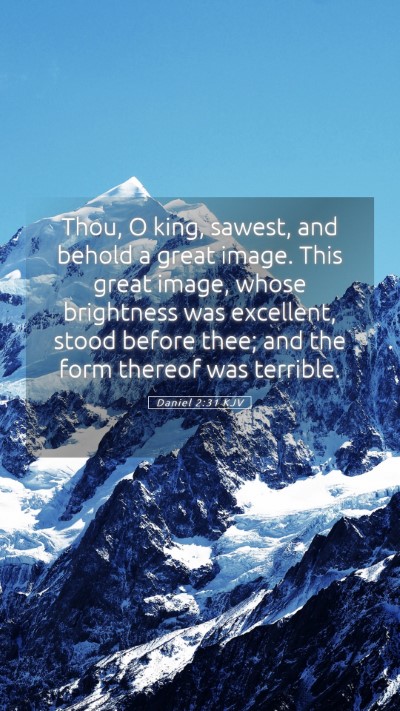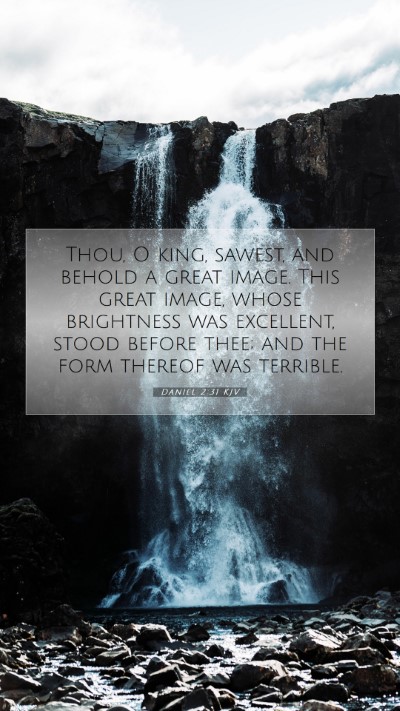Understanding Daniel 2:31
Daniel 2:31 states: "Thou, O king, sawest, and behold a great image. This great image, whose brightness was excellent, stood before thee; and the form thereof was terrible." This verse is a critical moment in Daniel’s interpretation of Nebuchadnezzar's dream, marking the beginning of a profound prophecy concerning future kingdoms and God's ultimate sovereignty.
Summary and Key Themes
In this verse, the great image represents a series of empires that will succeed one another, illustrating the overarching theme of God’s control over earthly kingdoms and history. Each component of the image symbolizes different kingdoms, emphasizing the temporary nature of human power compared to God's eternal kingdom.
Insights from Commentaries
- Matthew Henry’s Commentary: Henry emphasizes the grandeur and awesomeness of the image, noting that it displays the majesty of human empires. He interprets the dream as a warning to Nebuchadnezzar of the transient nature of his own kingdom, urging humility before God.
- Albert Barnes: Barnes highlights the significance of the dream as a divine revelation. He points out that the image's appearance and the terror it instilled in the king signify the seriousness of the message conveyed. The great image should be viewed as a symbol of both pride and downfall, illustrating how earthly power is subject to divine authority.
- Adam Clarke: Clarke provides an in-depth analysis of the components of the image, delving into the historical interpretations of the materials used (gold, silver, bronze, iron, and clay). He discusses how each material relates to different empires, bringing to light the eventual culmination in the establishment of God's everlasting kingdom.
Historical Context
To fully grasp the meaning of Daniel 2:31, one must consider the historical context in which it was written. The Book of Daniel is set during the Babylonian exile, a time when the Jewish people were under foreign dominion, facing challenges to their identity and faith. This prophecy provides reassurance of God's ultimate authority and the assurance that He holds the future in His hands.
Application to Daily Life
This verse and its interpretation call for reflection on the nature of power and authority in our lives. As believers, understanding the transient nature of worldly matters can encourage us to place our hope in God's eternal kingdom rather than transient earthly situations. It serves as a reminder that despite the chaos and instability witnessed in political and social realms, God is sovereign and in control.
Related Scripture References
- Jeremiah 27:5-7: Discusses God's sovereignty over nations and His ability to appoint rulers.
- Psalm 75:7: "But God is the judge: he putteth down one, and setteth up another," affirming God's authority over rulers.
- Revelation 11:15: "The kingdoms of this world are become the kingdoms of our Lord, and of his Christ," connecting the earthly kingdoms to God's ultimate reign.
- Isaiah 40:23-24: Contains a proclamation of God's supreme power over the elites of the world.
- Matthew 24:6: Jesus speaks of the coming conflicts between nations, emphasizing the temporary state of human affairs.
Concluding Thoughts
Daniel 2:31 presents a vital teaching on the nature of power, the fragility of human empires, and the enduring strength of God's kingdom. Through thoughtful study and interpretation of this verse, one gains deeper insights into God's plan and providence. For those engaging in Bible study groups or seeking online Bible study resources, this verse serves as a significant focal point for discussions around divine sovereignty and human authority.
Engaging with the Text
Consider utilizing various Bible study tools and resources to dive deeper into the interpretation of this scripture. Explore the themes outlined, and apply its powerful message to your life and understanding of the world today.


